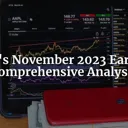Tags: Japan / Bonds
This fanpage is not officially affiliated with Berkshire Hathaway: Disclaimer
Warren Buffett's latest yen bond issuance signals a bold commitment to Japan's economic potential, raising ¥281.8 billion ($1.89 billion) to fuel future investments. Berkshire Hathaway has reaped substantial profits from its investments in Japanese trading houses ↗↗, especially for Mitsubishi ↗. The big question now is: What is Berkshire going to acquire with the money? Let’s explore the potential opportunities.

Introduction
Warren Buffett's Berkshire Hathaway has once again made waves in the financial world with its latest yen-denominated bond issuance, marking the largest such sale since the conglomerate's debut in the Japanese market in 2019 1. On October 10, 2024, Berkshire sold multitranche bonds worth a staggering ¥281.8 billion ($1.89 billion), reinforcing its strategic interest in Japan's economy and its potential for growth 1. This move underscores Buffett's enduring fascination with Japan, a country where he has previously increased stakes in major trading firms, significantly impacting the Nikkei 225 index 2.
The central question now emerges: What will Buffett acquire next with the proceeds from this bond sale? This question is not merely speculative but pivotal in understanding Berkshire's broader investment strategy amidst evolving global economic conditions. The issuance highlights Berkshire's commitment to diversifying its portfolio and tapping into markets that promise long-term value. As we delve into this article, we aim to explore potential investment targets, assess macroeconomic implications, and provide a comprehensive analysis of the strategic moves Berkshire might undertake.
Historically, foreign investments in Japan have ebbed and flowed with the country's economic cycles. Yet, Buffett's foray into the Japanese market has been marked by a keen eye for undervalued assets and a strategic alignment with firms that mirror Berkshire's own diversified structure 2. This article blends historical, economic, and political insights to offer shareholders a nuanced perspective on Buffett's latest venture and its potential ripple effects across the financial landscape.
The Bond Issuance: Details and Implications
Berkshire Hathaway's latest bond issuance is a meticulously structured financial maneuver, comprising seven parts with varying tenors ranging from three to thirty years 13. Below is a detailed breakdown of the series of the issued Senior Notes including interest rates and maturity dates:
| Principal Amount | Interest Rate | Maturity Date |
|---|---|---|
| ¥155,400,000,000 | 1.031% | December 8, 2027 |
| ¥58,000,000,000 | 1.265% | December 7, 2029 |
| ¥23,300,000,000 | 1.465% | October 23, 2031 |
| ¥16,000,000,000 | 1.737% | October 23, 2034 |
| ¥11,800,000,000 | 2.373% | October 21, 2044 |
| ¥5,000,000,000 | 2.577% | October 23, 2052 |
| ¥12,300,000,000 | 2.625% | October 23, 2054 |
| ¥281.8 billion (total) | from 1.0% to 2.6% | from 2027 to 2054 |
Note: at the time of writing, the conversion between US dollar and yen was 1$ = 149¥. Interestingly, the issuance is once again supported by the Bank of America as "Joint Book-Running Managers" 3, although Berkshire recently slashed its stake in BofA to below 10% 11.
The strategic timing of this issuance is noteworthy as well, coming at a time when the yen is weak and Japan's economic conditions are ripe for investment 78. The decision to offer higher premiums for most maturities compared to previous offerings in April signals Berkshire's confidence in the Japanese market's potential for recovery and growth 1. As the largest foreign issuer of yen bonds in 2024, raising a total of ¥545.1 billion in 2024, Berkshire's actions have significant implications for the Japanese bond market, potentially influencing investor sentiment and market dynamics 1.
The redemption options embedded within these notes provide Berkshire with financial flexibility, allowing for strategic adjustments should changes in U.S. taxation or other unforeseen events occur 3. This flexibility is crucial as it positions Berkshire to respond adeptly to shifting economic landscapes, both domestically and internationally.
Now, let's have a look at the big picture of the issuance.
Historical Context: Buffett's Japanese Ventures
Warren Buffett's foray into the Japanese market has been nothing short of transformative, both for his investment portfolio and the Japanese economy. Berkshire Hathaway's strategic acquisition of stakes in five major Japanese trading firms—Itochu Corp, Marubeni Corp, Mitsubishi Corp, Mitsui & Co, and Sumitomo Corp—demonstrates Buffett's keen eye for diversified and robust business models. These trading houses, which operate similarly to Berkshire itself, have seen their shares surge in 2024, with Mitsubishi Corp leading at a 33.3% increase and Itochu Corp close behind at 29.8% 2 ↗. This performance not only underscores the soundness of Buffett's choices but also highlights the positive ripple effect his endorsements have had on the Nikkei 225 index, which reached record highs earlier this year 14.
Historically, Buffett's investments have often aligned with his long-term, value-driven philosophy. The Japanese trading companies, with their shareholder-friendly policies and diversified operations, mirror the operational ethos of Berkshire Hathaway 2. This strategic alignment is not merely coincidental but a calculated move that leverages Japan's unique economic landscape. The cultural emphasis on stability and long-term growth in Japan resonates well with Buffett's investment principles, making Japan an attractive destination for Berkshire's capital.
Japan's economic history offers valuable lessons, particularly the booms and busts of the past. Buffett's investments in Japan can be seen as a modern parallel to the economic optimism of the post-war era, albeit with a more cautious and strategic approach. The long-term strategic interests of Berkshire in Japan are evident, as these investments are not just about immediate returns but also about embedding Berkshire into the fabric of Japan's economic future.
Potential Investment Targets: Financials and Insurers
As analysts speculate on Berkshire's next moves, Japanese banks and insurance companies emerge as potential targets. The strategic interest in these sectors is bolstered by their strong fundamentals and the evolving monetary landscape in Japan 4. The table below compares some (approximate!) key valuation metrics for potential targets:
| Company | Price-to-Earnings (P/E) | Price-to-Book (P/B) | Dividend Yield |
|---|---|---|---|
| Mitsubishi UFJ Financial Group | 10x | 0.9x | 3% |
| Sompo Holdings | 9x | 1.1x | 3% |
| Tokio Marine Holdings | 9x | 0.8x | 4% |
| MS&AD Insurance Group Holdings | 8x | 0.9x | 4% |
| Sumitomo Mitsui Financial Group | 11x | 0.7x | 3% |
| Dai-ichi Life Holdings | 8x | 0.8x | 4% |
The allure of Japanese insurers, such as Tokio Marine Holdings, SOMPO Holdings, and MS&AD Insurance Group Holdings, lies in their industry consolidation and pricing power 5. These companies dominate nearly 90% of the domestic underwriting business, providing a stable and profitable base for potential investments. Moreover, the Bank of Japan's cautious approach to interest rate normalization could enhance the profitability of financial firms, offering a favorable environment for new investments 8.
Additionally, other potential targets include Sumitomo Mitsui Financial Group and Dai-ichi Life Holdings, both of which offer attractive valuation metrics and strong market positions 10. Sumitomo Mitsui Financial Group, with its diversified financial services, and Dai-ichi Life Holdings, with its robust insurance offerings, present compelling opportunities for Berkshire Hathaway to further expand its investment portfolio in Japan.
Fortunately for Berkshire Hathaway shareholders, we can be confident that the company will conduct thorough due diligence to determine whether the companies mentioned above would make suitable investment targets.
Generally, Japanese financial firms align well with Berkshire's investment criteria, characterized by strong fundamentals and a focus on shareholder returns 46. The strategic fit is further emphasized by the historical resilience and adaptability of the Japanese financial sector, which has shown a remarkable capacity for recovery and growth. For Berkshire, expanding into Japanese financials not only diversifies its portfolio but also taps into a market ripe with potential synergies and strategic advantages.
Macroeconomic Considerations: Interest Rates and Currency Dynamics
In the current economic landscape, interest rates and currency dynamics play a pivotal role in shaping investment strategies, particularly for a global player like Berkshire Hathaway. The Bank of Japan has maintained a cautious approach to policy normalization, keeping its benchmark interest rate steady at "around 0.25%"—the highest since 2008 8. This is in stark contrast to the U.S. Federal Reserve, which has recently cut interest rates by 50 basis points to a range of 4.75% to 5.0% 8. This divergence in monetary policy creates a unique environment for foreign investment.
The interest rate differentials between Japan and the U.S. present both challenges and opportunities. For Berkshire, navigating these differences is crucial. While lower interest rates in Japan can reduce borrowing costs and potentially enhance investment returns, they also underscore the importance of currency exchange considerations. The yen's weakness, having hit a 34-year low in 2023, offers potential cost advantages for foreign investors like Berkshire 7. A weak yen can make Japanese assets more attractive by lowering the entry cost and potentially boosting returns when converted back to stronger currencies.
However, the broader economic context in Japan presents a mixed picture. Japan's GDP growth remains sluggish, narrowly avoiding recession in late 2023 and early 2024, and the country faces significant demographic challenges with a shrinking and aging population 7. These factors pose structural hurdles to sustainable growth but also create opportunities for strategic investments that can capitalize on undervalued assets.
Moreover, geopolitical tensions and global economic shifts add layers of complexity. Potential conflicts, such as those around Taiwan or in the East China Sea, could severely impact Japan's economy 7. For Berkshire, understanding these risks is essential in crafting a resilient investment strategy.
The influence of monetary policy on corporate profitability and investment returns cannot be overstated. As the BOJ aims to normalize monetary policy without harming the economy, the potential for increased corporate profits due to a weak yen and favorable interest rates becomes a compelling narrative for investors 8. Historical precedents of interest rate cycles further highlight the importance of timing and strategic positioning in foreign investments.
Strategic Considerations: Aligning with Berkshire's Philosophy
Berkshire Hathaway's investment philosophy is deeply rooted in long-term value creation and risk management. Potential investments in Japan must align with these core principles. The Japanese market, with its unique challenges and opportunities, offers a fertile ground for Berkshire's strategic pursuits.
Diversification and strategic fit are paramount in Berkshire's portfolio management. The company's existing stakes in five major Japanese trading firms—Itochu Corp, Marubeni Corp, Mitsubishi Corp, Mitsui & Co, and Sumitomo Corp—demonstrate its commitment to a diversified approach 2 ↗. These firms operate in a highly diversified manner, somewhat akin to Berkshire's own operational style, and follow shareholder-friendly policies that are superior to those typically seen in the U.S. 2. However, Berkshire may not further increase its stake in these companys as 10% seems to be an upper bound for each of them 9.
The potential for strategic partnerships and collaborations with Japanese firms is another avenue for enhancing value creation. By leveraging its global expertise and resources, Berkshire can drive growth in Japanese markets, tapping into sectors that align with its long-term objectives.
Corporate governance and shareholder policies are critical factors in Berkshire's investment decisions. The emphasis on shareholder-friendly practices by the Japanese trading firms in its portfolio reflects Berkshire's commitment to aligning with companies that prioritize shareholder value 2.
Berkshire's investment strategy has historically evolved to adapt to new market conditions. This adaptability is crucial in navigating the complexities of the Japanese market, where economic and structural reforms are moderately likely, aimed at liberalizing entrenched market structures to enhance competition 7. By strategically positioning itself, Berkshire can create long-term value for its shareholders through well-considered investments in Japan.
Aligning potential investments with Berkshire's philosophy involves a careful balance of risk and opportunity, strategic fit, and long-term value creation. As Berkshire continues to explore opportunities in Japan, these considerations will remain at the forefront of its decision-making process, ensuring that its investments are not only profitable but also sustainable in the long run.

Conclusion: The Road Ahead for Berkshire and Japan
As we reflect on Warren Buffett's latest yen bond issuance, it becomes clear that this strategic move is not merely a financial transaction but a profound statement of confidence in the Japanese economy. The issuance of ¥281.8 billion ($1.89 billion) in yen-denominated bonds underscores Berkshire Hathaway's commitment to diversifying its portfolio and capitalizing on the unique opportunities that Japan presents. This bold step positions Berkshire as a pivotal player in the Japanese market, with the potential to drive significant positive change and growth.
The historical context of Buffett's investments in Japan reveals a pattern of strategic foresight and an ability to identify undervalued assets. Buffett's previous stakes in major trading firms have already yielded impressive returns, demonstrating his knack for aligning with companies that share Berkshire's operational ethos. As he contemplates his next acquisitions, particularly in the financial and insurance sectors, the lessons learned from past foreign investments in Japan will undoubtedly inform his approach ↗ ↗. The emphasis on shareholder-friendly policies and robust corporate governance will remain paramount, ensuring that Berkshire's investments not only generate returns but also foster sustainable growth.
Looking ahead, the potential for Berkshire to create value for its shareholders and stakeholders in Japan is substantial. The current macroeconomic landscape, characterized by low interest rates and a weak yen, presents an attractive environment for investment. As Berkshire seeks to deepen its ties with Japanese firms, it stands to benefit from increased collaboration and innovation, further enhancing its competitive positioning. The ripple effects of these investments could extend beyond Japan, influencing global investment trends and fostering a more interconnected economic landscape.
Berkshire Hathaway's long-term vision and strategic alignment with its investment philosophy will be crucial as it navigates the complexities of the Japanese market. Shareholders should remain engaged and informed about the evolving investment journey, as each strategic move has the potential to unlock new opportunities and drive substantial value creation.
Annex: Possible Impact on Japanese Economy and Beyond
When Berkshire Hathaway, under the stewardship of Warren Buffett, makes a significant investment move, the ripple effects are felt far and wide. The recent issuance of yen bonds by Berkshire is no exception, and its implications for the Japanese economy and beyond are profound.
Impact on the Japanese Stock Market and Economy
Berkshire's investment in yen bonds is a strong vote of confidence in the Japanese economy. Such a move is likely to boost investor sentiment, potentially leading to a surge in the Japanese stock market. Historically, significant foreign investments have often acted as a catalyst for economic cycles in Japan, providing the necessary momentum for growth and stability. For instance, when foreign capital flows into Japan, it often leads to an appreciation in asset prices and can stimulate economic activity by increasing liquidity in the market.
Increased Foreign Investment Interest
Buffett's strategic decision could pave the way for increased foreign investment interest in Japan. When a titan like Berkshire Hathaway invests in a country, it sends a signal to other global investors that the market is ripe with opportunities. This could lead to a wave of foreign capital inflow, further strengthening the Japanese economy and potentially leading to a more robust economic recovery post-pandemic.
Innovation and Growth in Targeted Sectors
Berkshire's investments are also likely to drive innovation and growth in the sectors it targets. Historically, Buffett's investments have often led to increased capital availability for companies, enabling them to invest in research and development, expand their operations, and improve their competitive positioning. This can result in a broader economic impact, as innovation often leads to increased productivity and economic growth.
Increased Economic Collaboration Between Japan and the U.S.
The strategic investments by Berkshire could also foster increased economic collaboration between Japan and the U.S. As Berkshire deepens its ties with Japanese companies, it may lead to more bilateral trade and investment opportunities, strengthening the economic relationship between the two countries. This could have broader geopolitical implications, potentially leading to more aligned economic policies and cooperation on global economic issues.
Influence on Corporate Governance Practices
Berkshire's presence in Japan might also influence corporate governance practices and shareholder policies. Buffett is known for advocating strong governance and shareholder-friendly practices. His investments could encourage Japanese companies to adopt more transparent and efficient governance structures, aligning them more closely with global standards and potentially increasing their attractiveness to international investors.
Broader Implications for Global Investors
For global investors and market participants, Berkshire's move into Japan serves as a reminder of the importance of diversification and the potential opportunities in international markets. It underscores the value of looking beyond traditional markets and considering investments in economies that are on the cusp of transformation. As Berkshire leads the way, other investors may follow suit, potentially leading to a more interconnected and dynamic global investment landscape.
References
-
Berkshire issues bonds worth ¥282 billion, sparking Japan investment hopes - www.japantimes.co.jp ↩↩↩↩↩↩
-
These Asian firms in Buffett's Berkshire Hathaway portfolio have surged, with one soaring 30% - www.cnbc.com ↩↩↩↩↩↩↩
-
Form 424B5 - SEC Filing October 10th 2024 - www.sec.gov ↩↩↩
-
Buffett may target Japan banks or insurers for next purchase, analysts say - www.japantimes.co.jp ↩↩↩
-
The Attractive Business of Japanese Insurers | Hennessy Funds - www.hennessyfunds.com ↩
-
The overlooked potential of European and Japanese banks - www.janushenderson.com ↩
-
Growth ahead for the Japanese economy? - www.gisreportsonline.com ↩↩↩↩↩
-
Bank of Japan keeps key interest rate steady as it treads cautiously on normalizing policy - www.cnbc.com ↩↩↩↩↩
-
Warren Buffett explains why he bought 5 Japanese trading houses: I was 'confounded' by the opportunity - www.cnbc.com ↩
-
Buffett Watchers Tout Japan Insurers, Banks as Next Potential Value Targets - www.insurancejournal.com ↩
-
Berkshire slashes Bank of America stake to under 10%, no longer required to disclose frequently - www.cnbc.com ↩










